A single gunshot can produce 140 to 175 decibels of sound pressure, far exceeding the 85 dB threshold where hearing damage begins. Whether you fired one round without ear protection or spent an afternoon at the range with inadequate gear, the ringing in your ears is your body's warning signal that something has gone wrong inside your inner ear.
But how long does hearing loss actually last after shooting a gun? The answer depends on whether the damage is temporary or permanent, and understanding the difference could save your hearing for life.
This guide covers the science behind gunshot-related hearing loss, the critical timeline for recovery, when temporary damage becomes permanent, and exactly what you should do to protect yourself going forward.

Temporary Threshold Shift (TTS) vs. Permanent Threshold Shift (PTS): The Critical Difference
When you're exposed to a loud sound like a gunshot, your hearing ability temporarily decreases. Audiologists classify this change using two terms that every shooter should understand: temporary threshold shift (TTS) and permanent threshold shift (PTS).
Temporary Threshold Shift (TTS)
A temporary threshold shift is a short-term reduction in hearing sensitivity that typically recovers on its own. After exposure to loud noise, sounds seem muffled, and you may experience ringing in your ears (tinnitus). According to the National Institute on Deafness and Other Communication Disorders (NIDCD), a TTS usually resolves within 16 to 48 hours, though it can sometimes take up to two weeks.
During a TTS, the sensory hair cells in your inner ear are fatigued but not destroyed. Think of it like bending a blade of grass: it leans over but eventually springs back up. However, and this is critical, recent research suggests that even when hearing seems to return to normal after a TTS, there may be residual long-term damage that doesn't show up on a standard hearing test.
Permanent Threshold Shift (PTS)
A permanent threshold shift means your hearing has been irreversibly damaged. The sensory structures in your inner ear have been destroyed, and no amount of rest or medical treatment can restore them. PTS can result from a single extremely loud event, such as an unprotected gunshot, or from cumulative exposure over time.
The danger with firearms is that a single shot can cause either a TTS or a PTS, depending on the caliber, proximity, environment (indoor ranges are significantly louder due to reverberation), and whether you were wearing hearing protection.
The Timeline: What Happens After Unprotected Shooting
Understanding the recovery timeline helps you assess the severity of your hearing damage and decide when to seek medical attention.
0 to 30 Minutes After Exposure
Immediately after unprotected gunfire exposure, you'll likely experience:
- Muffled hearing in one or both ears
- Tinnitus (ringing, buzzing, or hissing sounds)
- A feeling of fullness or pressure in the ears
- Difficulty understanding speech, especially in noisy environments
These symptoms indicate that your auditory system has been overloaded. The severity depends on the intensity of the exposure.
1 to 24 Hours After Exposure
For mild TTS, hearing often begins to improve within the first few hours. The tinnitus may fade from a loud ring to a quieter hum. You may notice that hearing returns to one ear faster than the other, which is common since the ear closest to the gun's muzzle typically receives more damage.
24 to 48 Hours After Exposure
According to NIDCD research, most temporary hearing loss from noise exposure resolves within this window. If your hearing is noticeably improving during this period, it's a positive sign that the shift is temporary.
48 Hours to 2 Weeks After Exposure
If hearing has not substantially returned to normal within 48 hours, the damage may be more significant. Ongoing symptoms during this period warrant medical evaluation. Audiologists can perform hearing tests to determine the extent of the damage and whether treatment (such as corticosteroids) may help.
Beyond 2 Weeks
Any hearing loss or tinnitus that persists beyond two weeks is increasingly likely to be permanent. At this point, the damaged hair cells in your cochlea have likely died rather than recovered. Clinical research indicates that early intervention within the first 24 to 72 hours produces the best outcomes, so do not wait two weeks before seeing a doctor if your symptoms are severe.

When Temporary Hearing Loss Becomes Permanent: The Tipping Point
One of the most dangerous misconceptions among shooters is that if your hearing comes back, no harm was done. The science says otherwise.
Every TTS event weakens the sensory hair cells in your cochlea. Each time these cells are stressed and recover, they become slightly more vulnerable to future damage. Eventually, a noise exposure that would previously have caused only a temporary shift triggers a permanent one.
This tipping point varies between individuals and depends on factors including:
- Genetics: Some people are more susceptible to noise-induced hearing loss
- Age: Older ears are less resilient
- Cumulative exposure: The total lifetime noise dose matters
- Recovery time between exposures: Not allowing enough recovery time between shooting sessions accelerates damage
- Use of hearing protection: Even inconsistent protection use significantly changes outcomes
Research published in the Journal of the Acoustical Society of America has shown that repeated TTS events cause progressive damage to the synaptic connections between hair cells and auditory nerve fibers, a phenomenon known as hidden hearing loss. This damage doesn't appear on standard hearing tests but degrades your ability to understand speech in noisy environments, which is often the first complaint among experienced shooters.
The lesson: there is no safe number of unprotected gunshot exposures. Every single one matters. If you shoot regularly, quality ear protection for shooting is not optional.
Tinnitus: The Most Common Lasting Symptom Among Shooters
Even when hearing thresholds return to normal after a noise exposure, tinnitus often lingers. According to the American Tinnitus Association (ATA), approximately 25 million Americans experience tinnitus, and noise exposure, particularly from firearms, is one of the leading causes.
Tinnitus manifests as a perceived sound when no external sound is present. Shooters commonly describe it as:
- A high-pitched ringing
- A constant hum or buzz
- A pulsing or clicking sound
- A roaring sound, like rushing water
Why Does Tinnitus Persist?
When noise damages the hair cells in your cochlea, they may send erratic electrical signals to your brain. Your brain interprets these signals as sound. In many cases, the tinnitus resolves as the hair cells recover. But if the damage is significant enough to cause cell death or synapse damage, the tinnitus can become chronic.
Tinnitus is the number one disability among military veterans, and firearm noise is the primary cause. Recreational shooters face the same risk. Studies show that recreational shooters are 4 times more likely to develop hearing loss than non-shooters, and tinnitus is frequently the first symptom they notice.
If you're experiencing persistent tinnitus after shooting, it's a signal that damage has occurred and that future shooting without proper ear protection will almost certainly make it worse.
Cumulative Damage: Why "It Was Only One Time" Is a Myth
There's a persistent belief among shooters that occasional unprotected exposure is no big deal. The science firmly contradicts this.
Here's the reality: the sound energy from a single gunshot at 140 dB peak SPL is equivalent to almost a full day of exposure to continuous noise at 85 dB. Firing 1,000 rounds is acoustically equivalent to approximately 3 years of allowable occupational noise exposure, according to research from the National Hearing Conservation Association (NHCA).
Consider the cumulative effect:
- A typical range session might involve 100 to 300 rounds
- A competitive shooter might fire thousands of rounds per month
- A hunter who fires even a few unprotected shots per season accumulates significant damage over decades
Research from a study published in Otology & Neurotology found that for every five years of hunting, the likelihood of high-frequency hearing loss increased by seven percent. Studies reported 57 to 100 percent increased odds of marked high-frequency hearing loss among hunters with increasing years of shooting experience.
Making matters worse, 70 to 80 percent of hunters never wear hearing protection, and only about half of target shooters wear protection consistently. Among youth, 62 percent never wear hearing protection while hunting.
This is why cumulative damage is so dangerous: it happens gradually, session by session, and by the time you notice the hearing loss, significant irreversible damage has already occurred.

The Science: Stereocilia Damage and Why It's Irreversible
To understand why gunshot hearing loss can be permanent, you need to understand the microscopic structures that make hearing possible.
How Hearing Works
Sound waves enter the ear canal and vibrate the eardrum, which transfers those vibrations through the three tiny bones of the middle ear (the ossicles) to the fluid-filled cochlea. Inside the cochlea, approximately 15,000 to 20,000 hair cells are arranged along the basilar membrane. Each hair cell has tiny bristle-like projections called stereocilia.
When sound waves cause the fluid in the cochlea to move, the stereocilia bend. This bending opens ion channels that convert the mechanical energy of sound into electrical signals, which travel via the auditory nerve to the brain. This process is called mechanotransduction.
What Happens During Acoustic Trauma
A gunshot creates an impulse noise so intense that it physically damages the stereocilia. The NIDCD explains that loud sounds can cause stereocilia to bend excessively, break, or fuse together. The hair cells themselves can swell and eventually die.
Here's the critical fact: unlike birds and amphibians, humans cannot regenerate cochlear hair cells. Once a hair cell dies, it is gone permanently. According to the CDC, noise-induced hearing loss is the only type of hearing loss that is completely preventable, but once it occurs, it is irreversible.
Indoor shooting environments are particularly hazardous because sound reflects off walls and ceilings, creating higher overall sound pressure levels and longer exposure duration per shot. This is one of the many reasons that proper hearing protection is essential every single time you fire a weapon, whether at the range or in the field.
How Loud Is a Gunshot? Decibel Levels by Caliber
Not all firearms produce the same sound levels. The caliber, barrel length, ammunition type, and environment all affect the decibel reading. Here are approximate peak sound levels for common firearms:
- .22 LR Rifle: ~140 dB
- 9mm Pistol: ~160 dB
- .45 ACP Pistol: ~157 dB
- AR-15 / 5.56 NATO: ~165 dB
- 12-Gauge Shotgun (28" barrel): ~152 dB
- 12-Gauge Shotgun (18" barrel): ~162 dB
- .30-06 Rifle: ~170+ dB
- .44 Magnum: ~164 dB
For perspective, OSHA's permissible exposure limit is 85 dB over an 8-hour workday, and NIOSH recommends hearing protection for any sound above 85 dB. A gunshot at 160 dB is not just slightly above the danger threshold; the decibel scale is logarithmic, meaning that 160 dB is 100,000 times more intense than 110 dB.
Even the quietest firearms on this list, .22 caliber rifles at around 140 dB, meet the threshold for immediate permanent hearing damage from a single shot. There is no safe firearm to shoot without hearing protection.
What to Do If You Experience Hearing Loss After Shooting
If you're currently dealing with hearing loss or tinnitus after a shooting incident, here's what you should do:
Immediately (First 24 Hours)
- Remove yourself from the noise source. Do not continue shooting.
- Stay in a quiet environment. Avoid loud music, concerts, power tools, or any other loud noise that could compound the damage.
- Don't panic. Temporary hearing loss resolves in most cases, but take it seriously.
- Note your symptoms. Document which ear is affected, whether you hear ringing, and how severe the muffling is.
Within 24 to 72 Hours
- See an audiologist or ENT specialist if your symptoms are severe or not improving. Early intervention with corticosteroids (oral or intratympanic) has shown better outcomes in clinical studies when administered within the first 24 to 72 hours.
- Get a hearing test (audiogram). This establishes a baseline and identifies the frequencies affected.
Within 2 Weeks
- Monitor your progress. Gradual improvement is a good sign.
- If symptoms persist beyond two weeks, seek immediate professional evaluation. Persistent symptoms beyond this window increasingly indicate permanent damage.
- Avoid any loud noise exposure during this recovery period.
Long-Term
- Invest in proper hearing protection before you ever shoot again. A pair of NRR 28 earmuffs paired with NRR 33 earplugs can bring gunshot noise down to safer levels.
- Get annual hearing screenings if you shoot regularly.
- Be vigilant about hearing protection in all loud environments, not just shooting. Existing damage makes you more vulnerable to future noise exposure.
Prevention: Choosing the Right Hearing Protection for Shooting
The only reliable way to prevent hearing loss from shooting is to wear proper hearing protection every single time. Here's what to know about your options.
Foam Earplugs
High-quality foam earplugs offer some of the highest NRR ratings available, typically NRR 25 to 33. They're inexpensive, disposable, and extremely effective when inserted correctly. The key is proper insertion: the earplug must be rolled thin, inserted deep into the ear canal, and held in place while it expands to form a complete seal.
TradeSmart Safety's NRR 33 foam earplugs are an excellent option for shooters who want maximum noise reduction at an affordable price.
Over-Ear Earmuffs (Passive)
Passive earmuffs work by physically blocking sound with cushioned cups that seal around the ears. They're easy to use, consistent in their protection level, and can be quickly put on and taken off between shooting sessions. Quality shooting earmuffs typically offer NRR 20 to 28.
TradeSmart Safety's passive earmuffs provide NRR 28 noise reduction with padded headbands for all-day comfort. They're available in complete shooting range kits that include ANSI Z87.1+ safety glasses and a protective carrying case.
Electronic Earmuffs
Electronic earmuffs use microphones and speakers to amplify ambient sounds (conversations, range commands) while instantly compressing or cutting off loud impulse noises like gunshots. They're ideal for shooters who need situational awareness. Learn more about the differences in our passive vs. electronic earmuffs guide.
The TradeSmart TacticalEdge Electronic Earmuffs provide NRR 24 protection with directional microphones for clear sound amplification, giving you the best of both worlds: hearing protection and situational awareness.
Dual Protection (Earplugs + Earmuffs)
For maximum protection, especially when shooting high-caliber firearms or shooting indoors, wear both earplugs and earmuffs simultaneously. This combination can achieve an effective NRR of approximately 36, which brings even the loudest firearms down to safer exposure levels.
TradeSmart Safety's Premium Shooting Kit includes NRR 28 earmuffs, NRR 33 foam earplugs, ANSI Z87.1+ safety glasses, a hard-shell carrying case, and a free Range Confidence Course that covers firearms fundamentals including proper hearing protection use. Every kit is backed by a 10-year warranty and ships free.

Protect Your Hearing Before It's Too Late
Noise-induced hearing loss from firearms is 100 percent preventable. But once it happens, it's irreversible. No surgery, no medication, and no hearing aid can restore the hair cells that gunfire destroys.
If you've experienced hearing loss after shooting, take it seriously. See a specialist if symptoms persist. And before you ever fire another round, make sure you have proper hearing protection that's rated for firearms noise.
TradeSmart Safety builds hearing and eye protection specifically for shooters, with NRR-rated earmuffs and earplugs, ANSI Z87.1+ certified safety glasses, and complete range kits that give you everything you need in one package. Every product comes with a 10-year warranty, free shipping, and a free Range Confidence Course to help you build safe shooting habits from the start.
Shop TradeSmart Safety Shooting Kits
Frequently Asked Questions
How long does hearing loss last after shooting a gun without ear protection?
In most cases, temporary hearing loss from a single unprotected gunshot exposure resolves within 16 to 48 hours. However, recovery can take up to two weeks depending on the severity of the exposure. If hearing loss or tinnitus persists beyond two weeks, the damage may be permanent. The caliber of the firearm, shooting environment (indoor vs. outdoor), and number of rounds fired all affect the duration and severity of the hearing loss.
Can one gunshot cause permanent hearing loss?
Yes. According to the NIDCD, a single exposure to impulse noise above 140 dB can cause immediate and permanent hearing damage. Since virtually all firearms produce peak sound levels at or above 140 dB, even a single unprotected shot can cause permanent hearing loss, especially with higher-caliber firearms or in enclosed spaces like indoor ranges.
What does hearing loss from shooting feel like?
Immediately after unprotected gunshot exposure, most people experience muffled hearing (as if their ears are stuffed with cotton), ringing or buzzing in the ears (tinnitus), a sensation of fullness or pressure in the ears, and difficulty understanding speech, particularly in environments with background noise. The ear closest to the gun's muzzle typically experiences more severe symptoms.
Should I go to the doctor for hearing loss after shooting?
You should see a doctor or audiologist if your hearing loss is severe immediately after exposure, if symptoms are not improving after 24 to 48 hours, or if tinnitus persists beyond a few days. Early treatment with corticosteroids within the first 24 to 72 hours has been shown to improve outcomes for acute acoustic trauma. Don't wait two weeks to see if it gets better on its own if the symptoms are significant.
Is tinnitus after shooting permanent?
Tinnitus after shooting can be either temporary or permanent. In many cases, mild tinnitus from a single exposure resolves within hours to days. However, if tinnitus persists beyond one to two weeks without improvement, it may become a chronic condition. Approximately 25 million Americans experience tinnitus, and noise exposure from firearms is one of the most common causes. Repeated exposure without hearing protection significantly increases the risk of developing permanent tinnitus.
What NRR rating do I need for shooting?
For shooting, you should use hearing protection with the highest NRR rating practical. Earmuffs with NRR 28 or higher and earplugs with NRR 33 are recommended. For high-caliber firearms or indoor shooting, dual protection (earplugs and earmuffs worn together) is strongly recommended, achieving an effective combined NRR of approximately 36. This level of protection is necessary because firearms produce 140 to 175 dB of peak sound pressure.
Are electronic earmuffs as protective as regular earmuffs for shooting?
Electronic earmuffs generally have slightly lower NRR ratings than passive earmuffs (for example, NRR 24 vs. NRR 28), but they provide adequate protection for most shooting scenarios. Their advantage is that they amplify quiet sounds like conversation and range commands while instantly cutting off dangerous impulse noise. For maximum protection with electronic earmuffs, especially with high-caliber firearms, pair them with foam earplugs underneath. Learn more in our passive vs. electronic earmuffs comparison guide.
Can hearing protection completely prevent hearing damage from shooting?
Properly fitted hearing protection significantly reduces the risk of hearing damage but may not eliminate it entirely for the loudest firearms. A single layer of protection (earmuffs or earplugs alone) reduces noise by 20 to 33 dB depending on the NRR rating. Dual protection can reduce noise by approximately 36 dB. For a 165 dB gunshot, dual protection would bring the exposure down to around 129 dB, which is below the 140 dB threshold for immediate damage from impulse noise. Consistent, proper use of hearing protection is the single most important step you can take to preserve your hearing as a shooter.
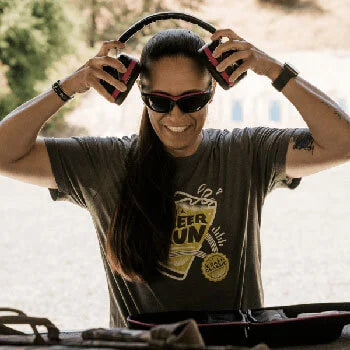
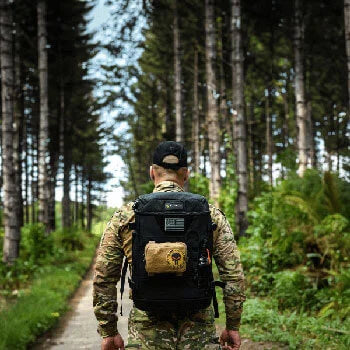
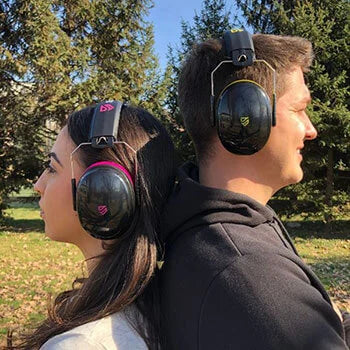
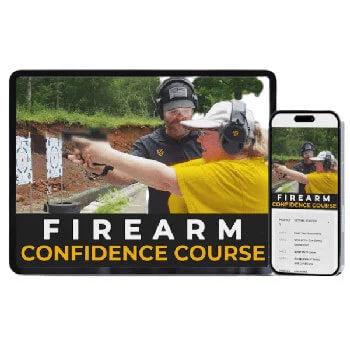
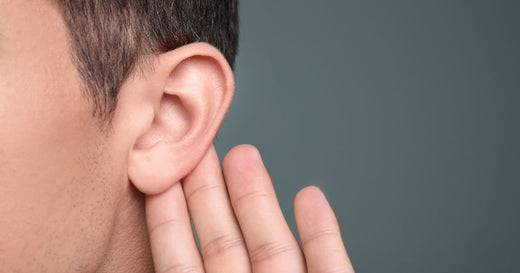
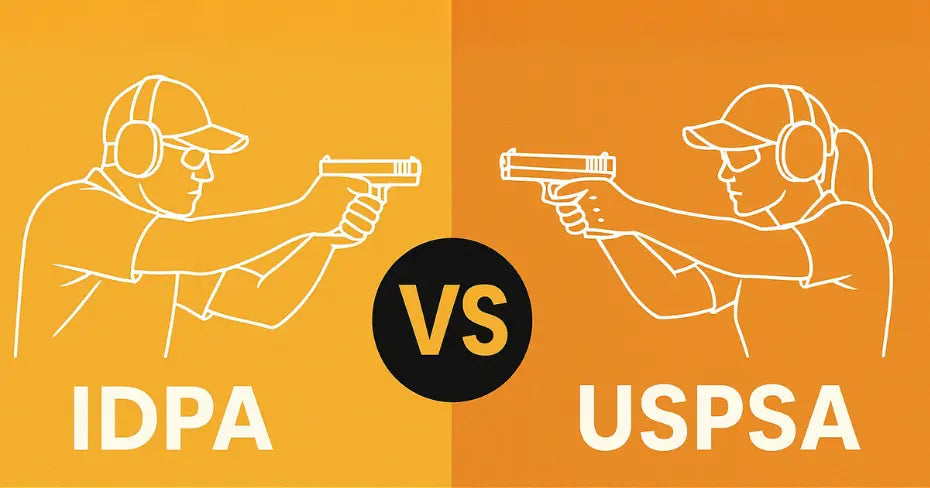
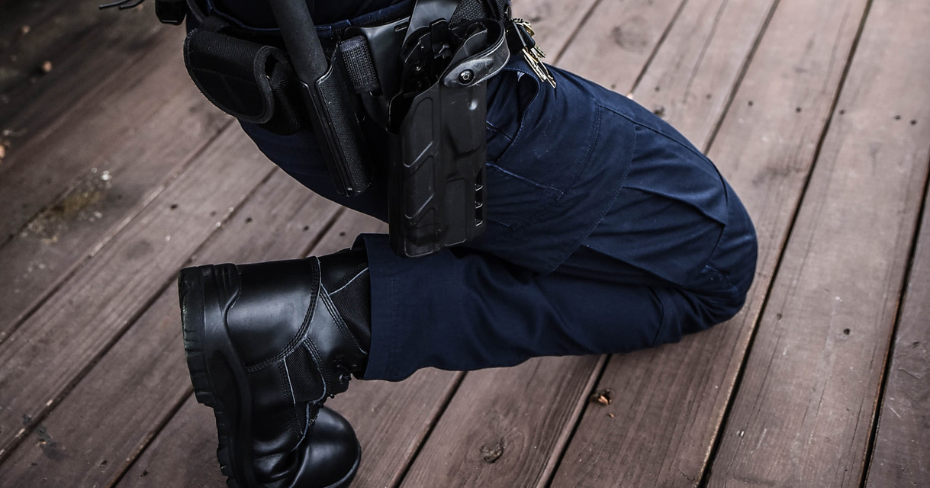
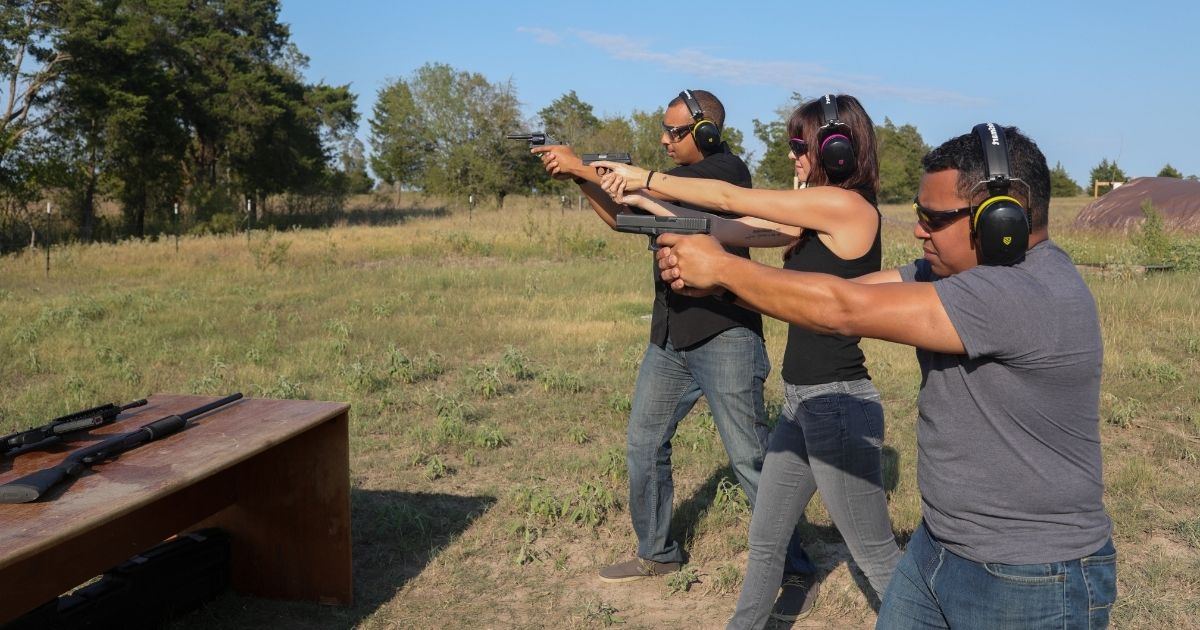
Chris
January 30, 2024
Went shooting yesterday for the first time with my friends. Always had ringing in the ears. Been bothering me for the past week but now has gotten much worse. Decided to wear my noise cancelling headphones because I find the earplugs not comfortable. It’s been 15 hours and my ears are still ringing loudly. Should I seek professional help?